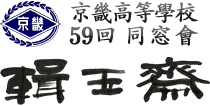불가리아의 Sofia와 Plovdiv를 방문하고 ---
최창균
건강 문제로, 오랜 망설임끝에 불가리아 Plovdiv에서 개최되는 "The 5th International Conference of Applied Mathematics and Computing (August 12 -18. 2008)"에 참석하고 오늘 8월20일 새벽 4시45분에 귀국하였습니다.
Sofia 관광을 3일동안 하고 Plovdiv 학회에 참석하여 초청강연을 하였습니다. 개회식에서는 축사를 하였습니다. 회의에는 300명 이상이 참석하였을 것입니다.
Sofia에서는 "최후의 만찬" 벽화가 있는 UNESCO 지정문화재 Boyana 교회를 비롯한 교회들, Rila수도원(UNESCO 지정문화재), 모스크, 박물관들(국립, 고고학 박물관)을, Plovdiv에서는 Nebet Tepe 선사유적지, 다양한 교회들(Bulgaria, Russia, Greece 동방정교회, Roman Catholic, Armenia 교회, ---), 문화센터, 금요 모스크, 오래된 가옥들, 공원들, 로마 극장을 포함하여 고대 유적들을 보았습니다.
Plovdiv 근교의 , Bachkovo수도원과 조용한 Hissar를 방문하여 로마제국의 장대한 도시성곽을 감명속에 둘러 보았습니다. 이 두 관광은 6박7일 숙식비(무조건 1인당 US$420; 세끼 식사 포함)에 포함된 것입니다. 등록비는 US$90이었습니다. 잠은 Novotel-Plovdiv에서 자고 식사는 모두 회의장인 대학 구내식당(버스 타고 가야함)에서 하였습니다. 마지막 식사(18일 아침)를 구내식당에서 한 사람들이, 우리 부부 제외하고, 몇 명이었는지 --- 우리가 식사할 때 다른 사람은 없었으니까.
불가리아 1인당 국민소득은 우리보다 훨씬 낮지만 문화적 유산, 또한 삶의 여유에 풍요로움이 엿보였습니다. 대부분이 휴경상태인 광활한 대지위에는 드문드문 있는 해바라기밭에서 해바라기들이 나란히 머리를 숙이고 있었습니다. 불가리아에서는 현재 인구가 감소되고 있습니다. Plovdiv 시내버스 안에 있는 차장, 가로수에 붙여놓은 부고장이 1950년대의 우리나라를 연상하게 하여 주었습니다.
무제한 속도로 달리는 자동차, 뚱뚱한 사람이 많이 보였습니다. 미국 유학시절 기숙사에서 먹던 음식도 제법 나와 추억을 되살려주었음은 물론 저도 살이 쪄서 돌아와 큰일입니다. 그러나 아슬아슬하게 가슴을 노출시킨 날씬한 여성들이 많아 집사람이 민망하게 생각할 정도였습니다. 여하튼 LG, Samsung 간판들과 우리나라 차들이 곳곳에 보여 반가웠습니다.
Hissar와 같은 마을에서 장기간 휴식을 취하고 싶은 생각이 간절합니다. 물가가 싼 불가리아 방문은 제 원기를 많이 회복시켜주어 다녀오기를 잘 하였다고 생각하고 있습니다.
------------------------------------------------------------------
History
The Bulgarian lands are ancient crossroads. It remembers many ancient civilizations and great peoples which wrote the pages of its turbulent history: bronze and iron spears and arrows, ruins of palaces and cities, wise words carved on rocks and stone columns, written on parchment and leather.
The Thracians bequeathed us the famous tombs near Kazanluk and Sveshtari, the unique gold treasures from Panagyurishte and Rogozen. The Hellenes built the beautiful coastal towns of Apollonia, Anhialo and Messambria, and Romans - ancient Aescus, Nikopolis ad Istrum and Nove. Huns, Gothes and Averas later passes through our lands. Around the mid-7th century the Slavs came from the north across the Danube and reached as far as the Black Sea and the Adriatic. They were followed by the Bulgarians of Khan Asparouh...
In fact, there were only three states in Europe in 681: The Western Roman Empire, BULGARIA, and The Eastern Roman Empire (Byzantium)...
Culture
One has to see the magnificent Thracian treasures, the monumental but beautiful work of the Greek and Roman cities in order to understand why Bulgaria became the cradle of Slav culture.
For thirteen centuries the Bulgarian has been creating literature, art and music. Bulgarian culture has given the world men of great achievements, unparalleled in history.
In the 9th centurie the brothers Cyril and Methodius, recognised as the patrons of Europe, upset the trilingual dogma and created the alphabet of the Slav peoples.
During the 14th centurie John Koukouzel - The Angel-voiced carried out a reform in Eastern Orthodox church music. Unknown painters created masterpieces which have become part of the UNESCO list of World Heritage.
Born from the power of tradition, modern Bulgarian culture, too, triumphs in the world. A quatrain of the great Bulgarian poet Hristo Botev has found a place in the Sorbonne, Boris Christoff and a whole host of Bulgarian singers have conquered the world's opera stages, the "Mystery of Bulgarian Voices" has astounded melomaniacs, the paintings of Vladimir Dimitrov-The Master can be seen in the world's finest galleries.
------------------------------------------------------------------
Bulgaria
From Wikipedia, the free encyclopedia
Capital
(and largest city)
Sofia
42°41′N, 23°19′E
Official languages Bulgarian
Ethnic groups
84% Bulgarians, 9% Turkish, 5% Roma, 2% minority groups
Demonym Bulgarian
Government Parliamentary republic
Formation
- Founded 681
- Last previously independent state
1422
- Autonomy within the Ottoman Empire
1878
- Unification with Eastern Rumelia 1885
- Officially recognized independence 1908
EU accession January 1, 2007
Area Total 110,910 km² (112th)
Population
- 2008 estimate 7,640,238 (94th)
- 1998 census 7,932,984
- Density 68.9/km² (124th)
GDP (PPP) 2008 estimate
- Total $92.894 billion (63rd)
- Per capita $12,252 (65th)
GDP (nominal) 2008 estimate
- Total $49.686 billion (75th)
- Per capita $6,546 (88th)
Bulgaria [bʌlˈgɛriə] (help•info) (Bulgarian: България, transliterated: Balgariya, pronounced IPA: [bəlˈgarija]), international transliteration Bălgarija, officially the Republic of Bulgaria (Република България, Republika Balgariya, pronounced IPA: [rɛˈpubliˌka bəlˈgarija] is a state in the Balkans. It borders five other countries: Romania to the north (mostly along the River Danube), Serbia and the Republic of Macedonia to the west, and Greece and Turkey to the south. The Black Sea defines the extent of the country to the east.
Bulgaria comprises the classical regions of Moesia, Thrace, and Macedonia. Old European culture within the territory of present-day Bulgaria started to produce golden artifacts by the fifth millennium BC.
The country preserves the traditions (in ethnic name, language and alphabet) of the First Bulgarian Empire (632/681 – 1018), which at times covered most of the Balkans and spread its alphabet, literature and culture among the Slavic and other peoples of Eastern Europe.
Centuries later, with the decline of the Second Bulgarian Empire (1185 – 1396/1422), the country came under Ottoman rule for nearly five centuries. The Russo-Turkish War of 1877-1878 led to the re-establishment of a Bulgarian state as a constitutional monarchy in 1878, with the Treaty of San Stefano marking the birth of the Third Bulgarian State. After World War II, Bulgaria became a communist state and part of the Eastern Bloc. In 1990, after the Revolutions of 1989, the Communist party gave up its monopoly on power and Bulgaria transitioned to democracy and free-market capitalism.
Currently Bulgaria functions as a parliamentary democracy under a unitary constitutional republic. A member of the European Union since 2007 and of NATO since 2006, it has a population of approximately 7.6 million, with Sofia as its capital and largest city.



